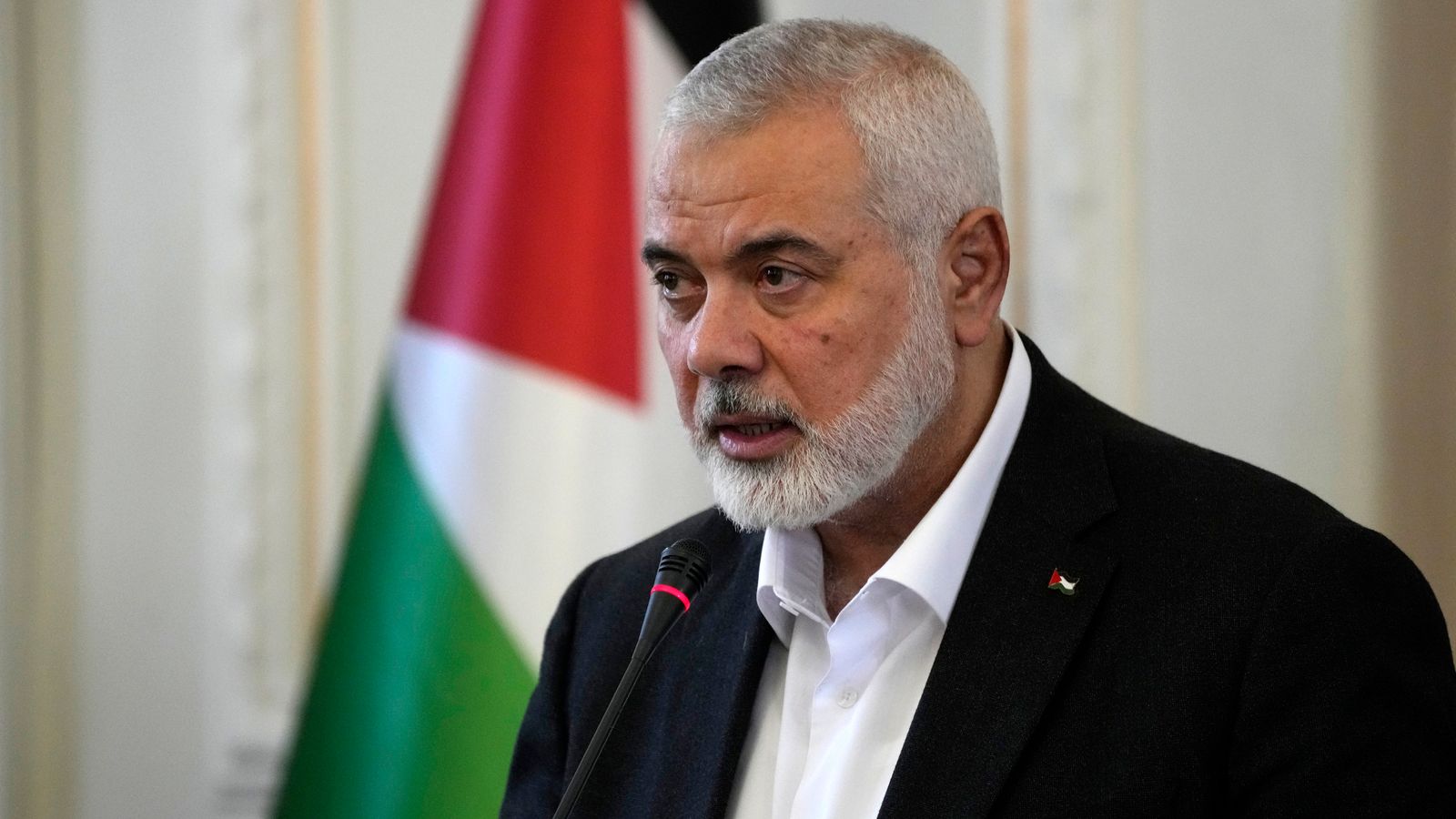
Haniyeh’s death will put any remote chance of a ceasefire on hold
By Nicole Johnston, Sky correspondent formerly based in Gaza
At the start of the war in Gaza, Israeli Prime Minister Benjamin Netanyahu made it clear Israel would go after the leaders of Hamas wherever they were, both inside Gaza and out.
Though Israel has not claimed responsibility, the killing of the leader of the political wing of Hamas – Ismail Haniyeh – is a major blow to the group.
Haniyeh was the pragmatic face of Hamas. He was less hardline and militaristic than Yayha Sinwar, who is the head of Hamas inside Gaza and is leading the battle.
Ismail Haniyeh was the public face of Hamas diplomacy in Arab capitals. He was leading efforts to negotiate a ceasefire in Gaza. In recent years he’d been based in Qatar which hosts the political wing of the group, but had shuttled between Turkey, Lebanon, Iran and Egypt.
Aside from the regional implications, this will necessitate a change of leadership at the top of Hamas. But the group is adept at this. Its structure allows for a smooth transition of power.
The assassination of Hamas leaders is not unusual. Hamas founder, Sheikh Ahmed Yasin was assassinated in 2004. A month later another senior leader Abdel Aziz al Rantisi was also killed by Israel.
Within the Palestinian national movement, Haniyeh was a popular figure, even among those who were adamantly opposed to its ideology.
He was born in the refugee camps of Gaza, in al Shati, or beach camp. He joined the group as a young man and rose through its ranks. Haniyeh led Hamas’s brief foray into politics. The group beat its political rival Fatah in Palestinian national elections in 2006 but the international community did not accept the result.
A brief civil war in Gaza between Hamas and Fatah followed. Fatah was kicked out of the enclave and Hamas took over. Haniyeh’s short-lived term as Palestinian prime minister was over and Hamas and Fatah have been bitter rivals ever since, despite a few attempts at reconciliation.
I last interviewed Haniyeh in 2016, he said then: “It is difficult to break the will of the people of Gaza, they can handle the siege.” Asked about building tunnels, he said: “We are preparing to defend the Palestinian people with all our resistance.”
Many Gazans blame Hamas for leading them into this devastating war, but they also know Haniyeh’s death will put any remote chance of a ceasefire on hold, while the ramifications of this assassination play out.
